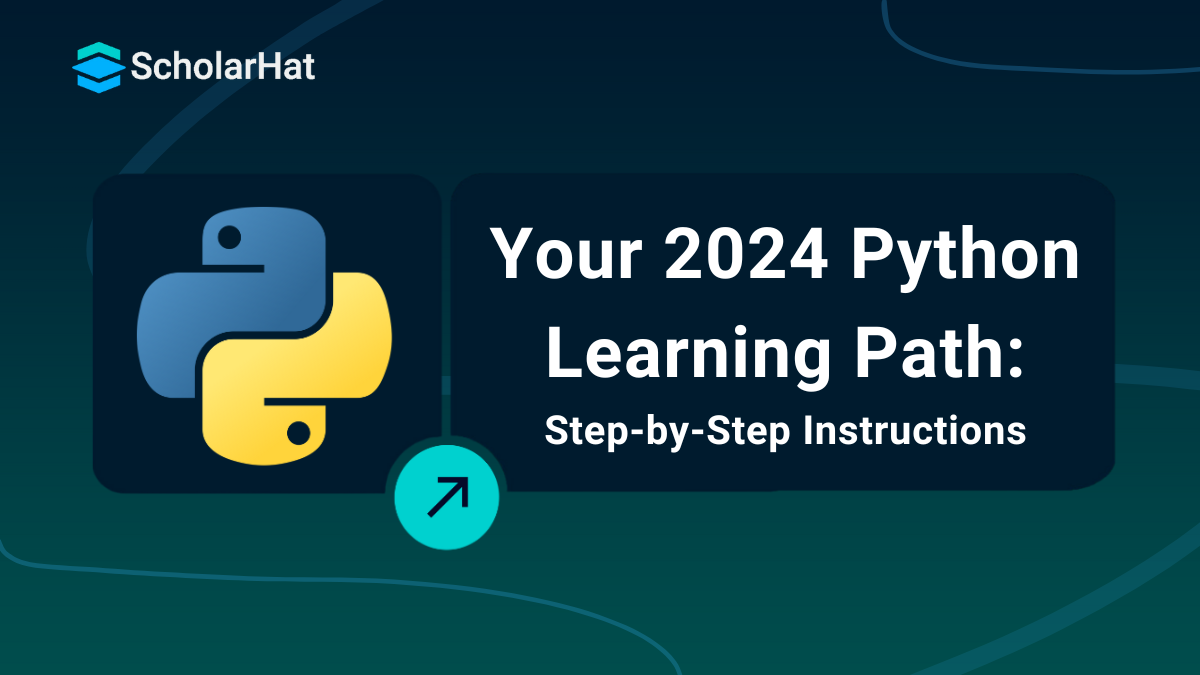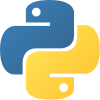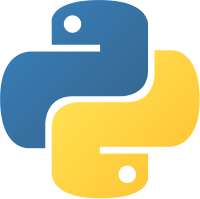28
DecHow to Learn Python (Step-By-Step) in 2025
Learning Python Step-By-Step
Learning Python Step-By-Step is essential for anyone wishing to advance in the IT business. It supports many programming paradigms, including as procedural, object-oriented, and functional programming, allowing developers to select the appropriate method for their projects. Python's simplicity and versatility make it an excellent choice for both beginners and experienced developers.
In this Python tutorial, we'll look at how to efficiently learn Python, from grasping its fundamentals to using it in real-world examples. We'll discuss the significance of Python in modern technology, why it's critical to learn Python in 2025, and practical advice and tools to help you understand the language. Only 15% of learners master Python on their own. Enroll in our Learn Python for Free course and build in-demand skills today!
What is Python?
- Python is a high-level, interpreted programming language that is famous for its simplicity and readability.
- Conceived by Guido van Rossum in 1991, Python puts an emphasis on the code's readability using a clean and simple syntax.
- Python's core principles are simplicity, clarity, and flexibility, making it a good language for both beginners and experienced programmers.
Why Python is So Popular in 2025?
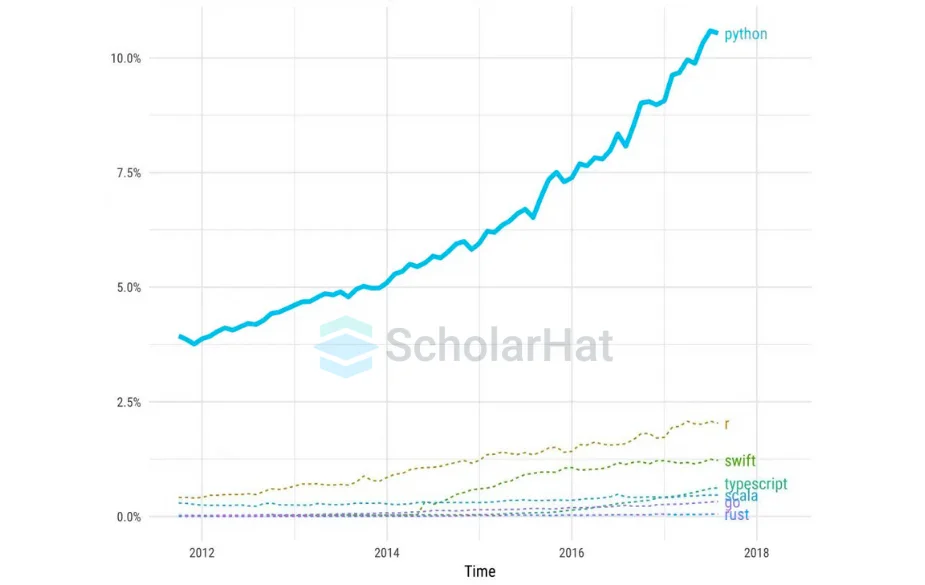
- Python, however, has been growing in popularity in all spheres since 2024. It is easy to use and very readable for beginners, yet it has powerful libraries and frameworks that attract experienced developers.
- What sets it apart from the other languages is its capabilities in handling hard data science tasks, empowering machine learning algorithms, and developing heavy-duty web applications.
- This is what has made Python the topmost programming language compared to languages such as Java or C++.
- Python’s popularity is determined by its readability and ease of learning, making it useful to developers of all skill levels.
- Its versatility enables it to be used in a wide range of fields, from web development to data science and is backed up by a robust library ecosystem.
- Python's platform independence interpreted nature, and open-source status add to its appeal, providing flexibility and strong community support.
Why You Should Learn Python in 2025?
- Learning Python in 2025 can be strategic for anyone looking to open up his or her career prospects.
- Python plays a critical role in data science, machine learning, and artificial intelligence, areas that are fast-growing and in demand.
- In addition, Python's adaptability to web development and automation has massive benefits for applications in diverse fields.
- It enjoys a vast community of Python developers, and resources are available to aid a beginner's learning of Python.
Key Features of Python
- Simple and easily read syntax: Python's intuitive, human-like language syntax makes it easy for learners to acquire and code.
- Rich Standard Library and Third-party Modules: Python comes with a rich standard library and an ecosystem of third-party modules for developers, which facilitates extending functionalities.
- Cross-platform compatibility: Python is cross-platform, which means that code can be developed and executed in a variety of systems, including Windows, macOS, and Linux.
- Strong Community Support: Python has one of the largest and most active communities of any programming language, so you'll find plenty of resources, tutorials, and forums for both beginners and developers.
How to Learn Python in 2025 From Scratch
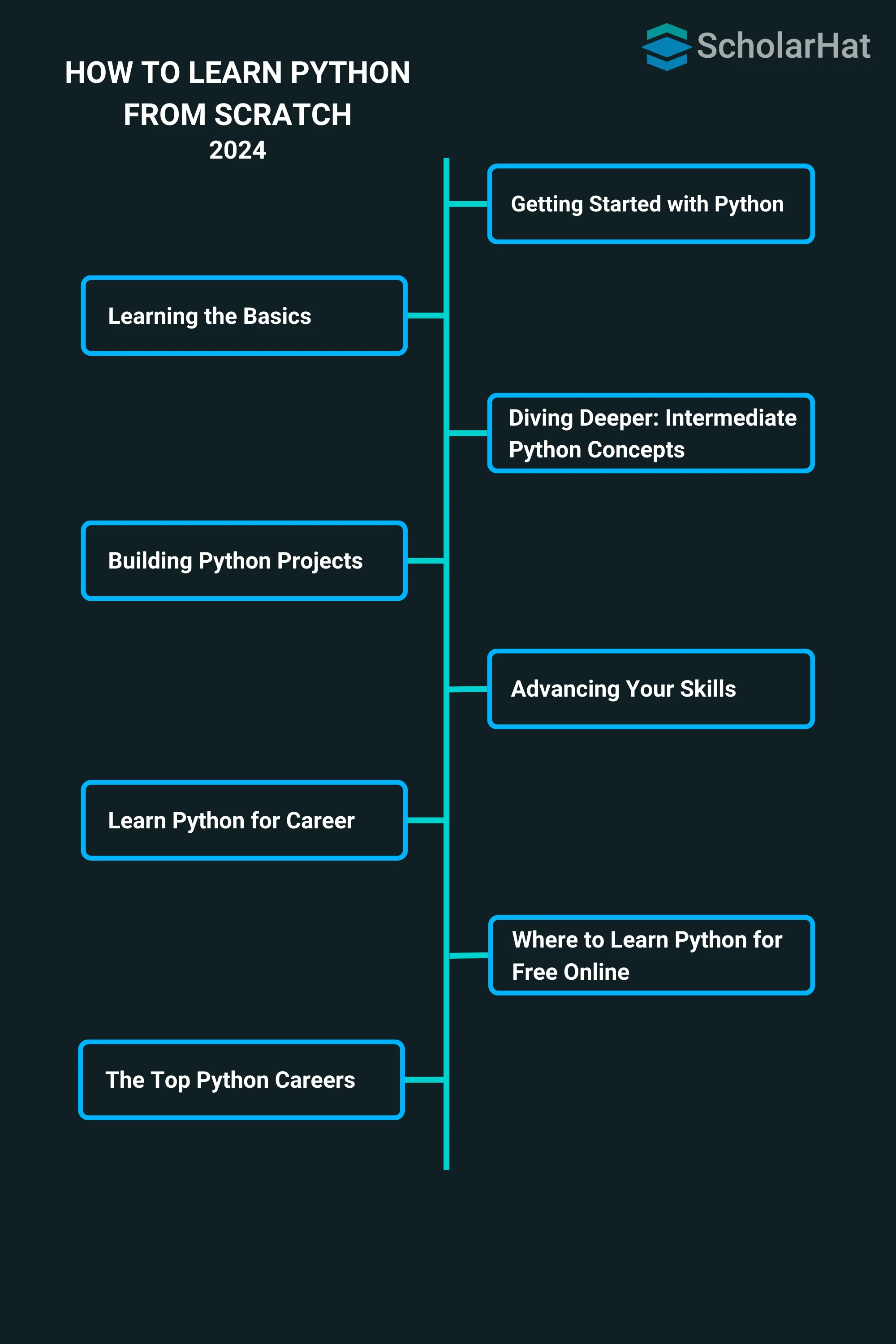
Learning Python from scratch involves the methodic approach in which theory is combined with practical exercises. Here is how it goes:
1. Starting with the Basics
- Learn the syntax of Python, variables, data types, and basic operators.
- This will build a good base for doing further studies.
2. Practice with Simple Programs
- Write a few small programs in order to get some hands-on experience with whatever is learned.
- This will help consolidate the understanding and improve confidence levels.
3. Explore Python Libraries
- When you have a strong grip on the basics, go for exploring some of the rich libraries that come with Python, such as NumPy, Pandas, and Matplotlib.
4. Work on Projects
- Apply your knowledge by working on projects that interest you.
- This could be anything from web development to data analysis.
5. Join Python Communities:
- Be part of the Python forums on social media and also at local meetups.
- It will provide support and inspiration as you learn more.
Step 1: Getting Started with Python
What is Python?
- Python is a powerful programming language that has evolved significantly since its inception.
- From a small scripting language, it has now become indispensable in the fields of data science, AI, and web development.
Benefits of Learning Python
- The advantages of learning Python are unending, such as the high demand for Python in the employment field and its capability to prototype and bring any project into development very rapidly.
- Job opportunities and career growth are also abundant when Python is learned because of its popularity.
Installing Python
- To get started on your Python journey, first,install Python on your PC. Python's current version is available for download from thereofficial website, Python.org.
- The installation process is simple, and it includes a package manager called pip, which allows you to easily install additional libraries and tools as you progress in your study.
Step 2: Learning the Basics
- Python's Syntax and Semantics: Python is easily read and has clean syntax. Good indentation is very important in Python as it controls and changes the hierarchy of code flow.
- Variables, Data Types, and Operators: Understanding variables, data types, and operators is basic. Python data types include integers, floats, strings, and more. Every data type has a corresponding type of operator that can be applied to perform various operations.
- Loops and Conditional Statements: One can only control the way a Python program works by mastering the perfect execution of the basic control structures loops (for, while) and conditional statements (if, elif, else).
- Functions and Modules: Functions encapsulate your code to be reused, and modules organize your code. You can also import the libraries that extend Python's functionality.
Step 3: Intermediate Python Concepts
- Error Handling and Exceptions: Of course, error handling is one essential part of ensuring your programs run fine. Learning how to apply try-except blocks to manage exceptions is going to make your code robust.
- Working with Files and Directories: File handling in python is a very important skill for any Pythonista. In this section, you will learn how to read from and write into files, as well as handle directories and file paths in Python.
- Object-Oriented Programming (OOP) with Python: OOP is a programming paradigm that allows you to model real-world entities by using classes and objects in your source code. Knowledge of OOP principles enables you as an application developer to build more advanced and much more scalable applications.
- Working with Libraries and Packages: Python has a very rich ecosystem of libraries and packages. Examples of significant libraries that are very useful in data analysis and visualization are NumPy, Pandas, and Matplotlib, among many others.
Step 4: Building Python Projects
1. Importance of Hands-on Projects
- Projects are an indispensable step in the learning journey. They provide a hands-on approach toward an in-depth understanding and, at the same time, make it easy to retain knowledge.
2. Structuring Your Projects
- Organizing your code, version control, and best practices are needed for project development.
3. Project Ideas for Beginners:
- Data Science and Machine Learning: Building a very simple data analysis script or a very basic machine learning model using libraries like Pandas and Scikit-learn.
- Web Development: Developing a small web application using Flask or Django, two popular Python frameworks.
- Automation Scripts: Develop scripts for the automation of common repetitive tasks, such as file manipulations and web scraping.
Step 5: Advancing Your Skills
- As you progress from beginner to intermediate and experienced Python programmer, it's critical to expand your knowledge of more sophisticated topics.
- This involves understanding complex libraries and frameworks like Django for web development, TensorFlow for machine learning, and Pandas for data processing.
- Exploring these technologies enables you to take on more complex projects, such as constructing scalable web applications, machine learning models, and analyzing massive datasets.
- Working on complicated, real-world projects not only solidifies your knowledge but also provides practical experience, which is highly recognized in the industry.
- Continuous learning and experimenting with these advanced tools can help you prepare for specialized careers in data science, artificial intelligence, and software development.
Step 6: Learn Python for Career
1. Using Python for Data Science and AI
- Master key libraries: Pandas, NumPy, scikit-learn.
- Getting the fundamentals of ML and AI with Python.
2. Python for Web Development
- Learn in detail web frameworks like Flask and Django that help you develop dynamic web applications.
3. Python for Automation and Scripting
- Make good use of Python's scripting abilities when handling system administration and DevOps tasks by automating workflows and processes.
4. Python for Scientific Computing
- Get to understand how to make use of scientific libraries such as SciPy and SymPy when carrying out research and any other scientific analysis.
Step 7: Where to Learn Python for Free Online
- There are many free resources available to learn Python. Websites like ScholarHat provide a Python Programming beginner to advanced level Course, which is a fantastic for individuals new to programming.
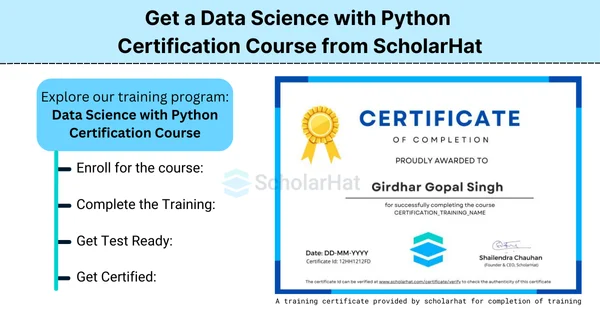
- Furthermore, communities such as Stack Overflow and GitHub play an important role in giving support and code samples, allowing you to learn and progress on your Python journey.
Step 8: The Top Python Careers in 2025
As already seen, there is a growing demand for Python-skilled workers, and there are numerous professions that require the programming language. Here are some of the best Python-based occupations you can pursue:
1. Data scientist
- They are the data world's official detectives, tasked with discovering and understanding rich data sources, managing vast amounts of data, and combining data points to spot trends.
- They employ their analytical, statistical, and programming skills to collect, analyze, and comprehend large datasets. They then apply this expertise to develop data-driven solutions for challenging business problems.
- One possibility is to develop machine learning algorithms that provide new insights (e.g., identifying consumer groups), automate corporate procedures (e.g., credit score prediction), or provide customers with new value.
- To learn more about how to become a data scientist, check out the ScholarHat Tutorial.
- To masterthese skills, ScholarHat's Data Science with Python Certification Course offers the necessary instruction to excel in this field.
Key skills:
- Skills in Python programming.
- Mastering front-end technologies (HTML, CSS, JavaScript)
- Knowledge of Python web frameworks (e.g., Django and Flask)
- Experience with ORM libraries.
- Basic knowledge of database technology (e.g., MySQL, PostgreSQL).
Essential tools:
- Python IDEs (such as PyCharm)
- Version control systems (such as Git)
- Python web development libraries (such as Django and Flask)
2. Data analyst
- Data analysts interpret data and turn it into information that can be used to help a business.
- They gather data from many sources and examine patterns and trends.
- After obtaining and evaluating data, data analysts can share their results with the rest of the business, impacting strategic decisions.
Key Skills:
- Proficient with Python, R, and SQL
- Strong understanding of statistical analysis.
- Experience with business intelligence tools (e.g., Tableau and Power BI)
- Understanding data collecting and cleaning procedures
- Effective communication and presenting skills.
Essential tools:
- Data analysis uses tools (e.g., pandas and NumPy)
- Business intelligence data tools (such as Tableau and Power BI)
- SQL databases (such as MySQL and PostgreSQL)
- Spreadsheet software (such as Microsoft Excel)
3. Machine learning engineer
- Machine learning engineers are highly talented programmers who design and develop machines and systems that can learn and apply knowledge.
- These experts are in charge of creating programs and algorithms that enable computers to perform tasks without being explicitly told to do so.
- To learn more about how to become a Machine learning engineer, check out the ScholarHat Tutorial.
- To master these skills, ScholarHat's Data Science & Machine Learning Certification Training Program offers the necessary instruction to excel in this field.
Key Skills:
- Proficient with Python, R, and SQL
- A thorough understanding of machine learning methods
- Understanding of deep learning frameworks (e.g., TensorFlow)
Essential tools:
- Machine learning libraries (such as Scikit-learn, TensorFlow, and PyTorch)
- Matplotlib and Seaborn are two examples of data visualization tools. Data analysis and processing tools (such as pandas and NumPy)
- Deep learning frameworks (including TensorFlow, Keras, and PyTorch)
Summary
Learning Python in 2025 has become a must for furthering one's career in the IT business due to its simplicity, adaptability, and high demand in fields like data science, artificial intelligence, and web development. This tutorial goes from the very basics of learning Python and its syntax to some rather complex ideas.
The average Full-Stack Python Developer earns ₹30–40 LPA. Don’t settle for less—enroll in our Python Full Stack Course to level up!
FAQs
Take our Python skill challenge to evaluate yourself!

In less than 5 minutes, with our skill challenge, you can identify your knowledge gaps and strengths in a given skill.

